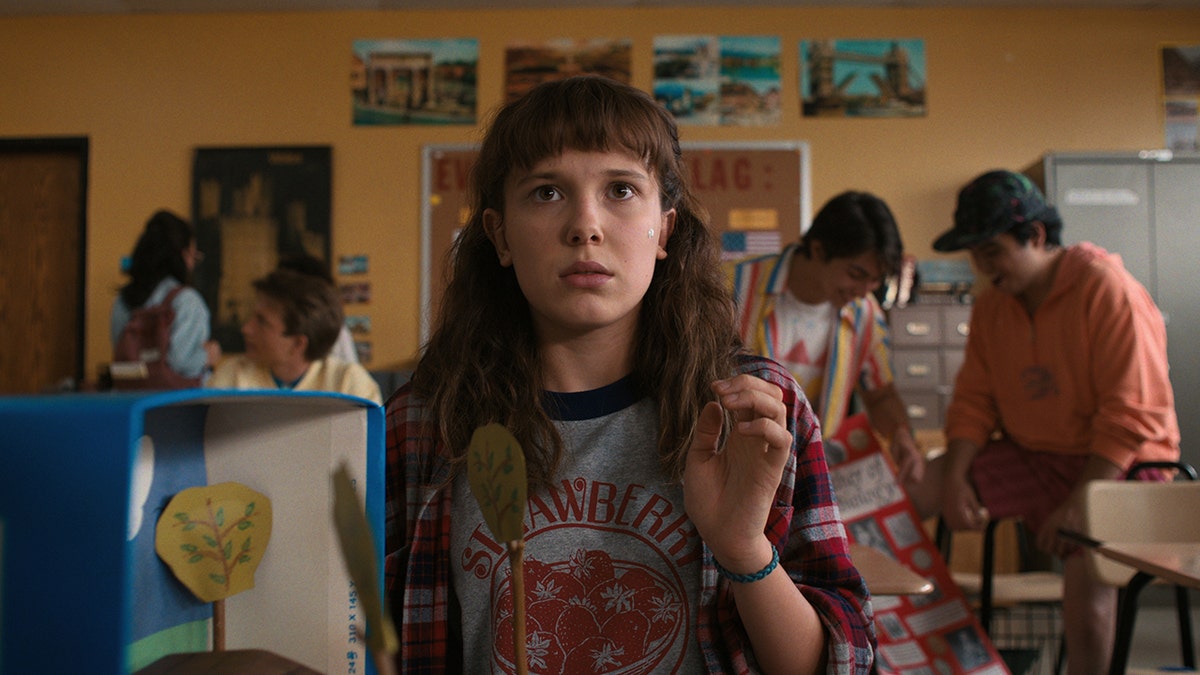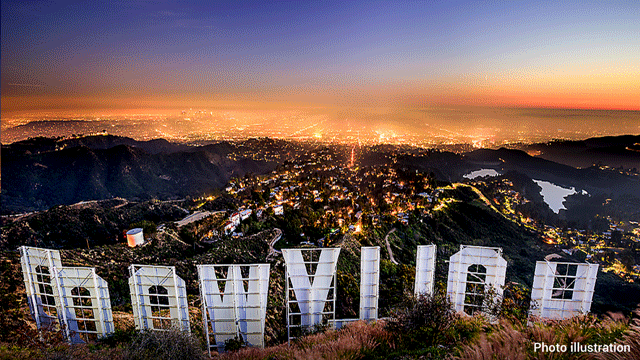Fox News Flash top entertainment headlines 7/28
Fox News Flash top entertainment and celebrity headlines are here. Check out what clicked this week in entertainment.
Many production companies made a statement three years ago – they pledged to stop filming in Georgia or at least "reconsider" after Gov. Brian Kemp signed the state's abortion bill.
The law passed in 2019, but a federal judge ruled it unconstitutional and blocked it. Now, a federal appeals court has overturned the lower court's ruling, allowing the law to take effect on July 20.
The decision from the federal appeals court was expected after the U.S. Supreme Court ruled in June that there is no constitutional right to an abortion in the Dobbs v. Jackson court case.
The Georgia legislation, known as the Living Infants Fairness and Equality (Life) Act, or "heartbeat" bill, bans abortion after a fetal heartbeat is detected -- sometimes as early as six weeks. The Georgia law includes exceptions for rape and incest, as long as a police report is filed. It also allows for later abortions when the mother’s life is at risk or a serious medical condition renders a fetus unviable.
Now that the three-judge panel of the 11th U.S. Circuit Court of Appeals has allowed the law to take effect, here's a look back at which Hollywood companies vowed to boycott Georgia as well as what others have said:
GEORGIA GOV. BRIAN KEMP SIGNS CONTROVERSIAL 'HEARTBEAT' BILL INTO LAW
Color Force
Color Force, the production company behind all four of the "Hunger Games" films, vowed to stop producing films in Georgia at the time, the Atlanta Journal-Constitution reported.
The last three films of the franchise were filmed in Atlanta. The prequel of the franchise titled "The Ballad of Songbirds and Snakes," which is set to be released in 2023, appears to be filming in Poland.

Color Force, the production company behind all four of the "Hunger Games" films, vowed to stop producing films in Georgia at the time. (AP Photo/Lionsgate)
Killer Films
Christine Vachon, CEO of Killer Films, was also among those who pledged to boycott the state as a filming location. The production company, which doesn't appear to have filmed in the state, specializes in Indie films, such as "Carol."
"Killer Films will no longer consider Georgia as a viable shooting location until this ridiculous law is overturned," Vachon tweeted at the time.
Mark Duplass of Duplass Brothers Productions
Mark Duplass, co-founder of Duplass Brothers Production, took to Twitter to condemn the new law.
"Don’t give your business to Georgia," he wrote at the time.
"Will you pledge with me not to film anything in Georgia until they reverse this backwards legislation?" Duplass, whose company also doesn't appear to have filmed in Georgia, added.
None of the production companies listed above responded when Fox News Digital asked if they would continue to boycott the state in multiple requests for comment.
Meanwhile, big name production companies all said the "heartbeat" bill could "impact" decision-making, or they would "reconsider" Georgia as a filming spot in 2019.
NBCUniversal
"If any of these laws are upheld, it would strongly impact our decision-making on where we produce our content in the future," NBCUniversal said in a 2019 statement, referencing abortion laws in multiple states the company films in - including Georgia.
In June it was announced that NBCUniversal will take over a space in Georgia, in partnership with Gray Television, to build out its Assembly Studios, according to the Atlanta Journal-Constitution. The production studio is set to open in 2023.
"Gray Television is thrilled to expand our already strong relationship with NBCU," Gray's Executive Chairman and CEO Hilton H. Howell, Jr. in a statement. "The new venture announced today places Gray's own studio projects inside a large, first-class television and film production facility that will draw upon and will surely increase the large pool of skilled industry professionals who also make their homes here in the Atlanta metroplex."
CLICK HERE TO SIGN UP FOR THE ENTERTAINMENT NEWSLETTER
WarnerMedia
WarnerMedia originally said that if the "heartbeat" bill held up in Georgia, the production company would "reconsider" the state as a home for new productions.
"We operate and produce work in many states and within several countries at any given time and while that doesn’t mean we agree with every position taken by a state or a country and their leaders, we do respect due process," WarnerMedia said in a statement at the time.
"We will watch the situation closely and if the new law holds we will reconsider Georgia as the home to any new productions. As is always the case, we will work closely with our production partners and talent to determine how and where to shoot any given project."
Netflix
Netflix's CEO Ted Sarandos noted the streaming site would continue to film in Georgia after the law was passed, but if it went into effect the company would "rethink" its "entire investment" in Georgia.
"We have many women working on productions in Georgia, whose rights, along with millions of others, will be severely restricted by this law," Sarandos said. "It’s why we will work with the ACLU and others to fight it in court. Given the legislation has not yet been implemented, we’ll continue to film there, while also supporting partners and artists who choose not to. Should it ever come into effect, we’d rethink our entire investment in Georgia."

Netflix's 'Ozark' starring Jason Bateman and Laura Linney was partially filmed in Georgia. (Netflix)

Parts of the "Stranger Things" series was also filmed in Georgia. (Courtesy of Netflix © 2022)
CLICK HERE TO GET THE FOX NEWS APP
Netflix has filmed multiple projects in Georgia including parts of "Ozark" and "Stranger Things."
NBCUniversal, WarnerMedia and Netflix did not respond to Fox News Digital's multiple requests for comment.
Tyler Perry Studios
Not everyone pledged to boycott. Tyler Perry chose to continue his plans to open a studio in Georgia despite the law saying he couldn't "just up and leave."
"Atlanta has been the dream. It has been the promised land," Perry said in 2019. "So when I got here, this whole state and city has been amazing to me and I wouldn’t trade that for anything. Also, I put $250 million in the ground here and in the studio. So when you have a quarter of a billion dollars sat down in the ground, you can’t just up and leave."
However, the filmmaker doesn't believe in the "heartbeat" legislation.
"I don’t believe any man should be able to tell a woman what she can do with her body or reproductive organs," he said.
On July 20, following the court's ruling Gov. Kemp said, "Since taking office in 2019, our family has committed to serving Georgia in a way that cherishes and values each and every human being, and today’s decision by the 11th Circuit affirms our promise to protect life at all stages."
However, the law is still facing legal hurdles as abortion providers and advocacy groups filed a new lawsuit Tuesday challenging the law based on privacy protections in the state Constitution.
The Associated Press contributed to this report.






